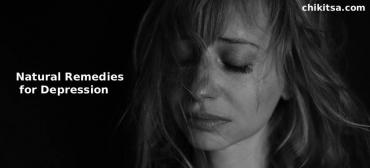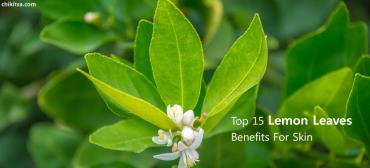5 Best Essential Oils For Ringworm

Unlike the name, Tinea or ringworm is not caused due to any worm. It is the commonest and a highly contagious fungal infection for the hair, skin, and nails. It affects nearly 20-25% of the population annually and across all age groups. Ringworm also reportedly impacts the overall quality of life of patients who suffer from it.
Tinea or ringworm can be differentiated into several types based on the part of the body affected, such as;
- On Foot – Tinea pedis or athlete’s foot
- On Groin – Tinea cruris or Jock itch
- On Scalp or Head – Tinea capitis (commonly affects children)
- On The Body – Tinea corporis
- Infection Of The Toes or Fingernails – Tinea unguium
This article will give you an overview regarding ringworm infection, its signs, and symptoms, home remedies along with essential oils for ringworm, and when to consult a dermatologist for ringworm.
Who Is Affected?
There is marked variability in the incidence of ringworm infection worldwide. Environmental factors such as overcrowding, humid temperature, and poor sanitation are greatly responsible for such a high prevalence of ringworm cases in India. Elderly individuals and diabetic patients are highly susceptible to fungal infections, especially ringworm.
Since tinea is a fungal infection, a moist environment is extremely favorable for its growth and infection. Similarly, moist or sweat prone areas of the body are most likely to be infected with ringworm such as armpits, groin, feet, scalp, and below the breasts.
Tinea or ringworm is a contagious infection, which means that it can be easily spread from person to person by contact, sharing towels or clothing of an infected person or direct contact with the floor or surfaces like door handles and furniture.
How To Diagnose Ringworm?
Tinea or ringworm may present with the following signs and symptoms;
- The first sign of ringworm infection is itching which may or may not be painful.
- The most characteristic presentation of ringworm infection is a specified area of redness and inflammation, being more severe on the edges.
- The center area of the ringworm lesions is often clear.
- When the scalp is infected, the hair becomes brittle and begins to fall out leaving tiny bald spots on the scalp.
- Another form of tinea which affects the scalp produces yellow-colored crusts around the hair.
- The infection of the feet presents as excessive dryness, scaling, and formation of fissures between the toes. In some cases, the sole may also be involved.
- The infection of feet with tinea also produces a characteristic odor from the lesions due to the dead skin.
- When nails are involved, they begin to appear dull and yellowish instead of the normal shiny nails.
Essential Oils For Ringworm
Essential oils are extracted and distilled oils prepared from plants. Since essential oils are highly concentrated, they need to be used with a carrier oil so that they don’t irritate the skin due to direct application. Coconut oil is the best carrier oil since it is easily available, cost-effective and coconut oil itself has antifungal properties.
There are certain essential oils that possess anti-microbial and anti-fungal properties. These essential oils for ringworm are given higher importance owing to all the health benefits these have to offer with absolutely no side effects. Some essential oils for ringworm are;
1. Oregano Oil
Oregano essential oil for ringworm is a potent anti-fungal. A study conducted to observe the effects of oregano essential oil concluded that this oil inhibited fungal activity by 95% within just 6 hours of its use.
How To Use
The oil can be used in a diffuser at bedtime. Mix 8 drops of oregano oil in a teaspoon of carrier oil. Store this in a glass container and apply over the ringworm lesions at least 2-3 times a day.
2. Lemongrass Oil
Lemongrass essential oil for ringworm has anti-bacterial, anti-fungal, and anti-malarial properties. Lemongrass oil possesses all these health benefits due to the presence of ketones, esters, aldehydes, and terpenes. Local application of lemongrass to ringworm lesions helps to control the infection and prevents the spread of infection to other parts of the body.
How To Use
Mix few drops of lemongrass oil in a teaspoon full of carrier oil and apply it to the lesions at least 4-5 times in a day.
3. Tea Tree Oil
Tea tree essential oil has been used extensively by Native Australians for the treatment of fungal infections. This oil is being increasingly used in several skincare products due to its purifying effect on the skin. It is also the best essential oil for ringworm in children. A study has claimed that tea tree oil proved antifungal effects by causing complete deletion of fungal infection within eight hours of its use.
How To Use
Tea tree oil can either be applied directly to the lesions using a cotton swab with or without a carrier oil.
4. Neem Oil
Neem plant is native to India and holds great value in Indian medicine due to the wide variety of health benefits it has to offer. Besides its antifungal properties, it is also beneficial for reducing itching and redness of ringworm lesions.
How To Use
Neem oil can be used directly on the ringworm lesion or can be mixed along with carrier oil.
Home Remedies For Ringworm
Since ringworm is a fungal infection, maintaining general hygiene and sanitation goes a long way along with conventional medicinal treatment and certain home remedies for ringworm are;
1. Wash
keep the infected area as clean as possible by washing it regularly with soap and water. The soap must be used only by the person infected and not shared with other individuals in the same household. The soap can either be a simple one or a medicinal one as prescribed by the dermatologist. Regular washing and keeping the area clean not only reduces itching but also prevents any chances of secondary bacterial infection due to frequent scratching.
2. Turmeric

This home remedy is the most widely used kitchen herb not just for the purpose of cooking but also for its exceptional anti-microbial and anti-infective properties. Turmeric can be applied topically. Prepare a paste mixing turmeric powder with some water. This can be applied to the ringworm lesion directly. Turmeric can also be consumed in the form of turmeric milk preparation.
3. Aloe Vera

Fresh aloe vera gel extracted from a leaf can be applied locally to the ringworm lesion. Aloe vera has both anti-bacterial and anti-fungal properties. The application of fresh aloe vera gel on the ringworm lesion reduces infection, inflammation, and itching. Aloe vera gel also gives a cooling effect.
4. Apple Cider Vinegar
This can be applied externally as well as consumed for the best results. Apple cider vinegar has anti-infective and anti-fungal properties. Soak a sterile piece of cotton in apple cider vinegar and clean the ringworm lesion at least two to three times a day.
5. Coconut Oil

Coconut oil is the most widely-used oil in India and is the best essential oil for ringworm. Coconut oil, when applied locally to the ringworm lesion is known to destroy the cell membrane of the fungus and stop its growth. This, in turn, helps to prevent infection and also destroys the fungus.
When To See A Dermatologist For Ringworm?
It is necessary to see a dermatologist as soon as you notice the first signs and symptoms of ringworm such as itching, pain, and redness.
It is equally important for individuals who are prone to infect other individuals like swimmers and children to visit a dermatologist as soon as initial signs and symptoms of ringworm are noticed.
If you have been taking home remedies for ringworm, you should see a dermatologist if the signs and symptoms persist beyond two weeks.









